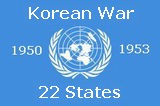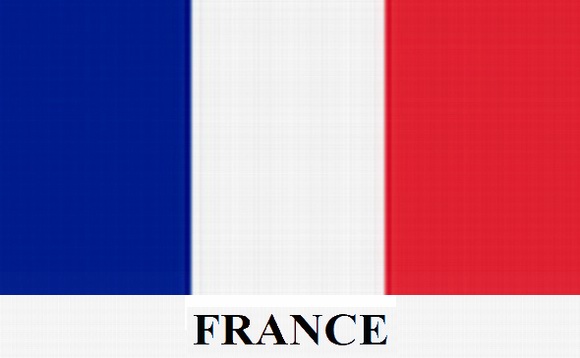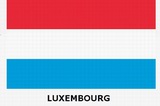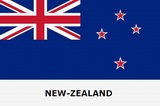- France and the Korean War
Due to political instability in Paris [11], the French Cabinet resigned on July 24, 1950, which meant that France was bereft of a government at the outbreak of the Korean War. The news of the war in Korea reached Paris while French President Vincent Auriol was trying to find a prime minister able to form a new cabinet. Indeed, on a Sunday morning, Auriol [12] met several politicians in order to choose the new head of government. During this period, the French president had little political influence, as the real power lay in the hands of the président du Conseil, that is to say, the prime minister. In the afternoon, however, Auriol summoned Alexandre Parodi, the then French foreign office’s general secretary, to talk about the Korean crisis. The president’s concern about the Korean affair was great and the situation raised three worrying questions:
(1)Was the fighting in Korea a truly independent conflict or was it a kind of deception, aiming at luring US Forces far from Europe and bogging them down in Korea?
(2)Was Europe the next place of a “hot” war between East and West?
(3)Did the North Koreans really invade the South, or did Americans attack first [13], as Communist propaganda claimed?
Finally, on June 30, 1950, Henri Queuille [14], a moderate socialist political leader, was appointed président du Conseil. Immediately after assuming his duties, he addressed parliament. While he failed to even mention Indochina, he did state that “for the first time, the principle of collective security principle, established by the birth of the United Nations (UN), could be applied to Korea” ([15], p. 279).
However, on July 4, having just formed his cabinet, Queuille suffered a vote of no confidence in parliament, with 334 votes against him and only 221 in his favor. As a result, France was once again in a need of a government.
Eventually, on July 12, René Pleven [16] was appointed prime minister. In his first address to parliament, he referred to the situation in Korea, not in order to send troops there, but to issue a call for national unity with government stability; he underlined the necessity to unite and to display sangfroid, good temperament, discipline, “concern for the fatherland”. This objective, however, did not mean a withdrawal of France from international engagements. The prime minister explained, on the contrary, that it meant that France would be loyal to the UN [15], advocating mediation between the two Koreas, and thereby supported the British and Indian initiatives in favor of negotiations (especially the Indian attempts of conciliation in October 1950, the British Buffer Zone proposal in November 1950 or the Indian proposal for a Three Persons Committee to seek a ceasefire in December, and a number of other initiatives [17].
Despite these efforts, news from Korea was very bad during this summer in 1950. Many French intellectuals and politicians noted that some people, fearing a new war just five years after the end of the Second World War, had bought canned food, sugar, soap, and other basic necessities. Raymond Aron, the famous French specialist of international relations and philosopher, referred to this as a quasi-panic [18] which, fortunately, did not last long.
In 1950, France was already at war on the Asian continent, where the French Army was suffering heavy losses at the hands of Ho Chi-Minh’s Vietminh [19]. In this period, the Indochina War attracted little public support in France, as some of the wounds of the Second World War had yet to heal. Moreover, the Indochina War was too expensive for a weakened nation as France was after the Second World War. Moreover, Indochina was geographically far from France, and the French colonial and administrative community living there was not that significant, perhaps 30,000 people altogether. Conversely, the French military commitment was heavy. The French so-called Corps Expéditionnaire d’Extrême-Orient (Far East Expeditionary Corps) reached between 94,000 and 150,000 men, and France alone could not afford the financial burden of this war [20]. France’s political agenda was dominated by European concerns, especially French domestic issues (employment, reconstruction, education), and questions of building anew a French military force in order to deter a possible Soviet attack. These were the main concerns of the socialist cabinet. The French government consequently focused its efforts on French and European matters.
Though unable to react immediately to the Korean affair, French diplomacy immediately took measures and voted with France’s allies on the UN Security Council.
After the North Korean attack of June 25, 1950, France, as a permanent member of the UN Security Council, not only voted for Security Council resolution 82 determining that the North Korean attack was a “breach of the peace” but called upon “the authorities in North Korea to withdraw its armed forces” (June 25, hour of New York) [21], and also, approved the Security Council resolution 83 (of June 27), recommending that the UNO members “furnish such assistance… as may be necessary to repel the armed attack”. On July 7, the French delegate to the UN, along with the British delegate, also presented a resolution giving the command of the UN forces to the United States of America. Consequently, General Douglas MacArthur, then head of the Supreme Command of Allied Powers (SCAP) in Japan, was put in charge of the United Nations Command in Korea.
Though under a Socialist government that was led by President Vincent Auriol since 1947, France participated in the Korean conflict by sending a naval unit (FS La Grandière) operating in Indochina [22] as early as July 1950. However, as noted above, French forces were already fighting in Asia, and the French government did not want to divert more of its resources from Indochina or from Europe.
French authorities were very embarrassed when the war broke out in Korea due to the internal pressure of the French Communist Party, one of the most powerful political factions in France at the time [23,24]. The Indochina War, which lasted eight years, was unpopular in France, and the French government did not want to spend more money for Korea and, thereby, enable the communist forces to exploit this discontent.
In August, however, France decided to answer UN and American solicitations. The question of France’s involvement in the Korean War was debated at the August 18, 1950 session of the National Defense Committee. President Auriol then said that the French effort in Indochina could allow limiting France’s participation in the Korean War, that is to say a purely symbolic action. “This action had to be done and instructions sent to the French ambassador in Washington, to explain our position to the Americans, and to insist on the importance and meaning of our action in Indochina”. Prime Minister Pleven shared this position. He explained that France’s participation in the conflict could lead to good things. “Moreover, it fits the principles of collective security we defended so many times in the International Assemblies”[25].
Although in agreement, Minister of Defense, Jules Moch, stated that even “dispatching a volunteer battalion is technically impossible”. Besides, he was doubtful regarding “the political opportunity of such a decision” [25], because of the political situation in France, where communists were an important political force, and where the communist propaganda was promoting the thesis of South Korean aggression. Also, perhaps due to the communist disinformation campaigns, Moch was skeptical about the North Korean responsibility in the Korea War, and thought that the South also shared responsibility for the conflict. He therefore opposed the dispatch of more than one battalion to Korea [26].
Jean Letourneau, the Minister of the Relations with the Associated States [27], contended that it was necessary to send a battalion in Korea. “By doing so, we will be logical with ourselves and we shall consolidate our situation in Indochina at an international level. Our participation in the Korean War, though modest, shall guarantee us the Allies’ assistance in case of new difficulties in Indochina” ([25], p. 17).
The French decision to participate in the Korean conflict was indeed closely tied to the situation in Indochina, and President Harry Truman’s speech of June 27, 1950 was highly praised in Paris, especially regarding the increase in the US assistance given to Indochina.
Finally, Pleven explained that “to involve ourselves, even in a symbolic way, presents many disadvantages. To do nothing is worse” ([25], p. 17). Five days later, an official press release announced the creation of an all-volunteers battalion, especially created to participate in the Korean War under the UN flag.

















